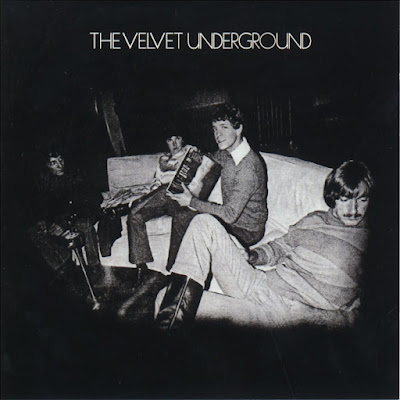I was inspired by a podcast called The 500 hosted by Los Angeles-based comedian Josh Adam Meyers. His goal, and mine, is to explore Rolling Stone Magazine's 2012 edition of The 500 Greatest Albums of All Time.
Album: # 316
Album Title: Self Titled
Artist: The Velvet Underground
Genre: Alternative Rock, Art Punk, Post-Punk
Recorded: TTG Studios, Los Angeles, California
Released: March, 1969
My age at release: 3
How familiar was I with it before this week: Not at all
Is it on the 2020 list? Yes, #143 - moving up 173 spots
Song I am putting on my Spotify Playlist: Candy Says
"Candy says,
I've come to hate my body
And all that it requires in this world"
The feeling being described by the speaker is called gender dysphoria, the sensation of discomfort experienced by people whose gender identity differs from the sex assigned to them at birth or their sex-related, physical characteristics.
I am far from an expert on topics related to gender identity and expression but, as an elementary school educator, I am becoming better informed and increasingly more compassionate. A common mantra in my profession is "Maslow before Bloom", which promotes the notion that educators must ensure most of the conditions presented in Abraham Maslow's Hierarchy of Needs are met before a child can begin to achieve the learning objectives set out by Benjamin Bloom's Taxonomy. (See graphic below).
Simply put, a child can not be expected to remember, understand, apply or analyse information if their basic physiological, safety and belonging requirements have not been met. Consequently, my colleagues and I prioritize each student's needs in order to maximize their success. As one might expect, this differs from building to building and from student to student. At one school, a breakfast program may be required to ensure every child has access to a nutritious meal.. At another, the establishment of a Gay/Straight Alliance within the student body might provide a sense of belonging to a student who is silently coming to terms with their own sexuality.
As I listened to The Velvet Underground this week, I tried to imagine the New York City art scene in the late-60s. Andy Warhol's Superstars and the infamous Factory buildings (an art studio that moved to four locations in Manhattan between 1963 - 87) have been featured in many films, both fictional and documentaries. Consequently, it wasn't a big leap of imagination for me to visualize this strange, psychedelic artistic space filled with a wild collection of eclectic, free-spirited and drug-fueled characters. David Bowie, Mick Jagger, Liza Minelli, Debra Harry, Jean-Michel Baquiat and, of course, Candy Darling and The Velvet Underground made The Factory their home and base of artistic, social and sexual discovery.
 |
| Warhol in one of the studio spaces at The Factory, NYC |
 |
| A "Happening" at The Factory |
Nearly 240 anti-LGBTQ (Lesbian, Gay, Bisexual, Transgender, Queer) bills have been filed in the United States this year -- most of them targeting trans-people. Educators still often hear hateful, vitriolic criticism of even our efforts to provide a sense of safety and belonging for these students. Candy Darling was, according to her biographer Cynthia Carr, relentlessly bullied in high school and, at age 16, a group of high-school boys tried to lynch her.
.jpg) |
| Darling and Warhol (1971) |
"Candy says,
I've come to hate my body
And all that it requires in this world"
Hopefully, the education community will become a refuge for future Candys to feel safer in a harbour of belonging where they can develop and be fulfilled as the human beings they are.






No comments:
Post a Comment